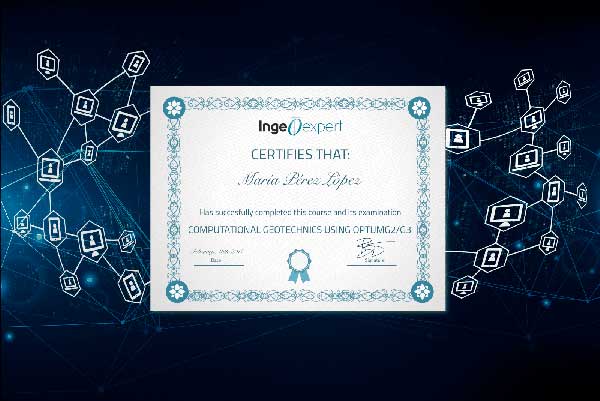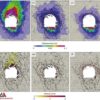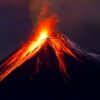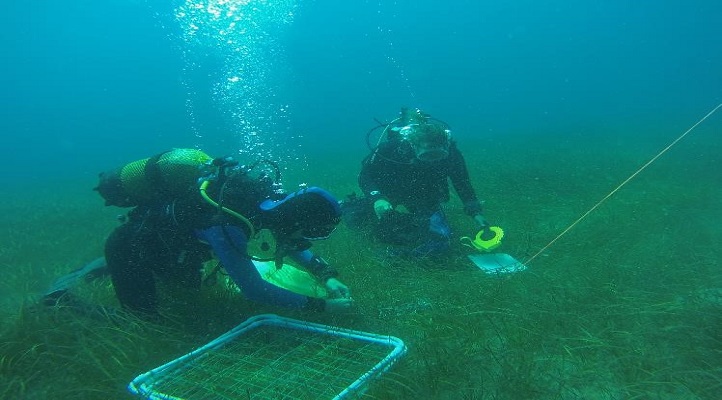Elements of coastal water monitoring and assessment program
Online course |
|
50 hours / 6 weeks |
|
To be determined |
Introduction
Coastal areas are commonly defined as the interface or transition areas between land and the sea, including large inland lakes. Many countries need comprehensive water quality monitoring and assessment information on their coastal environmental conditions and changes over time to help set levels of protection in water quality standards and to identify problem areas that are emerging or that need additional regulatory and non-regulatory actions to support water quality management decisions.
This information also helps the public, decision-makers, and other stakeholders taking the action for protecting human health and the environment. Without this information, it is difficult for environmental agencies to set priorities, evaluate the water quality status, adaptation, and control measures.
The elements of environmental monitoring of coastal waters depend on several elements, the most important of which are chemical, biological, and physical elements. Also, estuaries, industrial discharge, and flood drains in some cases are very important.
Objectives
The training shall enable students to :
- Understand the importance of coastal areas.
- Identify the different types of coastline.
- Identify what is meant by coastal waters and the coastal area.
- Identify the different elements that can be studied..
- Evaluate the effect of different pollution sources.
- How to prepare a costal water monitoring and assessment program.
Limited places.
MODULE 1: Introduction to the coastline
- – The importance of coastline.
- – Different types of coastline.
- – Different definitions for the coastal area.
- – Characterization of coastal water.
MODULE 2: Elements of coastal water
- – Chemical elements.
- – Physical elements.
- – Bioliogical elements.
- – Definition of hydrological elements.
MODULE 3: Sampling and analysis of water parameters
- – Field trip checklist.
- – Water sampling methods.
- – Water samples handling and reservation.
- – General water analysis methods.
MODULE 4: Introduction to the different coastal pollution sources
- – The transition zone at the coast.
- – Marine pollution resulting from human activities.
- – Natural sources of marine pollution.
MODULE 5: Prepare costal water monitoring and assessment program
- – Preliminary exploration and survey.
- – Mapping and site selections.
- – Selection and sorting of monitoring elements.
- – Timetable for short or long-term monitoring programs.
- – Data analysis, comparing, and assessment procedures.
MODULE 6: Case study
- – Proposed site and different related elements.
- – Action plan.
Adel Regal
Prof. Adel Regal is a professor of the marine environment and an environmental impact assessment and sustainability professional. He has over 25 years of experience in Environmental Consultancy, monitoring programs, and research. He has a strong educational background including a master’s and Ph.D. degrees in the field of ecosystem and environment and he was a Post-Doctor at Mie University Japan. He has enrolled in several international projects with EEAA, DANIDA, and PERSGA for monitoring the Red Sea and the Mediterranean Sea. He attended many international training programs (EIA, EEAA-SEAM-EIMP), Climate Changes Mitigation and Adaptation (SIDA, Sweden), Ocean Governance (IOI, Malta, and JICA-ISME training on CONSERVATION AND SUSTAINABLE MANAGEMENT OF MANGROVE ECOSYSTEMS (Okinawa-Japan). He was a trainer for the Youth Environmental group and participated in tenths of Environmental Impact Assessment studies for marine, infrastructure, and industrial projects. He became a member of WeAdapt (Stockholm Environment Institute), AWARENET , International Society of Mangrove Ecosystems- Okinawa, Japan. He established the IOI Alumni of Egypt and was assigned as International Ocean Institute Focal Point (HQ, Malta)
The course is delivered online through our easy-to-use Virtual Campus platform. For this course, a variety of content is provided including:
– eLearning materials
– Videos
– Interactive multimedia content
– Live webinar classes
– Texts and technical articles
– Case studies
– Assignments and evaluation exercises
Students can download the materials and work through the course at their own pace. We regularly update this course to ensure the latest news and state-of-the-art developments are covered, and your knowledge of the subject is current.
Live webinars form part of our course delivery. These allow students and tutors to go through the course materials, exchange ideas and knowledge, and solve problems together in a virtual classroom setting. Students can also make use of the platform’s forum, a meeting point to interact with tutors and other students.
The tutoring system is managed by email. Students can email the tutor with any questions about the course and the tutor will be happy to help.
This training is designed for:
1. Bachelor’s, Master’s, and Doctoral students in the field of water ecology and marine ecosystem.
2. Practitioners who are involved in the various aspects of the marine environment and pollution.
3. Administrators, managers, and planners who are responsible for preparing environmental monitoring, assessment, control, and adaptation plans.
4. National/ local NGO staff working in the fields of the marine environment, pollution, and coastal areas.
5. Environmental engineers and scientists with some previous exposure to the marine environment.
6. Marine environment supervisors in shipping and marine commercial activities.
Once a student finishes the course and successfully completes the assignments and evaluation tests, they are sent an accreditation certificate. The certificate is issued by Ingeoexpert to verify that the student has passed the course. It is a digital certificate that is unique and tamper-proof – it is protected by Blockchain technology. This means it is possible for anyone to check that it is an authentic, original document.
You will be able to download the certificate in an electronic format from the Virtual Campus platform. The certificate can be forwarded by email, shared on social networks, and embedded on websites. To see an example, click here.
Completion of this course will assist with most career options relating to the marine environment, this includes but is not limited to the following career options:
- – Employment with a different national or international environmental consulting company (SWECO, ARCADIS, DELTARES, etc..)
- – NGOs in the field of the marine environment.
- – National environmental ministries and foundations.
- – Environmental sectors at shipping and marine commercial companies.
- – Environmental awareness and training program institutes.
Introduction
Coastal areas are commonly defined as the interface or transition areas between land and the sea, including large inland lakes. Many countries need comprehensive water quality monitoring and assessment information on their coastal environmental conditions and changes over time to help set levels of protection in water quality standards and to identify problem areas that are emerging or that need additional regulatory and non-regulatory actions to support water quality management decisions.
This information also helps the public, decision-makers, and other stakeholders taking the action for protecting human health and the environment. Without this information, it is difficult for environmental agencies to set priorities, evaluate the water quality status, adaptation, and control measures.
The elements of environmental monitoring of coastal waters depend on several elements, the most important of which are chemical, biological, and physical elements. Also, estuaries, industrial discharge, and flood drains in some cases are very important.
Objectives
The training shall enable students to :
- Understand the importance of coastal areas.
- Identify the different types of coastline.
- Identify what is meant by coastal waters and the coastal area.
- Identify the different elements that can be studied..
- Evaluate the effect of different pollution sources.
- How to prepare a costal water monitoring and assessment program.
Limited places.
MODULE 1: Introduction to the coastline
- – The importance of coastline.
- – Different types of coastline.
- – Different definitions for the coastal area.
- – Characterization of coastal water.
MODULE 2: Elements of coastal water
- – Chemical elements.
- – Physical elements.
- – Bioliogical elements.
- – Definition of hydrological elements.
MODULE 3: Sampling and analysis of water parameters
- – Field trip checklist.
- – Water sampling methods.
- – Water samples handling and reservation.
- – General water analysis methods.
MODULE 4: Introduction to the different coastal pollution sources
- – The transition zone at the coast.
- – Marine pollution resulting from human activities.
- – Natural sources of marine pollution.
MODULE 5: Prepare costal water monitoring and assessment program
- – Preliminary exploration and survey.
- – Mapping and site selections.
- – Selection and sorting of monitoring elements.
- – Timetable for short or long-term monitoring programs.
- – Data analysis, comparing, and assessment procedures.
MODULE 6: Case study
- – Proposed site and different related elements.
- – Action plan.
Adel Regal
Prof. Adel Regal is a professor of the marine environment and an environmental impact assessment and sustainability professional. He has over 25 years of experience in Environmental Consultancy, monitoring programs, and research. He has a strong educational background including a master’s and Ph.D. degrees in the field of ecosystem and environment and he was a Post-Doctor at Mie University Japan. He has enrolled in several international projects with EEAA, DANIDA, and PERSGA for monitoring the Red Sea and the Mediterranean Sea. He attended many international training programs (EIA, EEAA-SEAM-EIMP), Climate Changes Mitigation and Adaptation (SIDA, Sweden), Ocean Governance (IOI, Malta, and JICA-ISME training on CONSERVATION AND SUSTAINABLE MANAGEMENT OF MANGROVE ECOSYSTEMS (Okinawa-Japan). He was a trainer for the Youth Environmental group and participated in tenths of Environmental Impact Assessment studies for marine, infrastructure, and industrial projects. He became a member of WeAdapt (Stockholm Environment Institute), AWARENET , International Society of Mangrove Ecosystems- Okinawa, Japan. He established the IOI Alumni of Egypt and was assigned as International Ocean Institute Focal Point (HQ, Malta)
The course is delivered online through our easy-to-use Virtual Campus platform. For this course, a variety of content is provided including:
– eLearning materials
– Videos
– Interactive multimedia content
– Live webinar classes
– Texts and technical articles
– Case studies
– Assignments and evaluation exercises
Students can download the materials and work through the course at their own pace. We regularly update this course to ensure the latest news and state-of-the-art developments are covered, and your knowledge of the subject is current.
Live webinars form part of our course delivery. These allow students and tutors to go through the course materials, exchange ideas and knowledge, and solve problems together in a virtual classroom setting. Students can also make use of the platform’s forum, a meeting point to interact with tutors and other students.
The tutoring system is managed by email. Students can email the tutor with any questions about the course and the tutor will be happy to help.
This training is designed for:
1. Bachelor’s, Master’s, and Doctoral students in the field of water ecology and marine ecosystem.
2. Practitioners who are involved in the various aspects of the marine environment and pollution.
3. Administrators, managers, and planners who are responsible for preparing environmental monitoring, assessment, control, and adaptation plans.
4. National/ local NGO staff working in the fields of the marine environment, pollution, and coastal areas.
5. Environmental engineers and scientists with some previous exposure to the marine environment.
6. Marine environment supervisors in shipping and marine commercial activities.
Once a student finishes the course and successfully completes the assignments and evaluation tests, they are sent an accreditation certificate. The certificate is issued by Ingeoexpert to verify that the student has passed the course. It is a digital certificate that is unique and tamper-proof – it is protected by Blockchain technology. This means it is possible for anyone to check that it is an authentic, original document.
You will be able to download the certificate in an electronic format from the Virtual Campus platform. The certificate can be forwarded by email, shared on social networks, and embedded on websites. To see an example, click here.
Completion of this course will assist with most career options relating to the marine environment, this includes but is not limited to the following career options:
- – Employment with a different national or international environmental consulting company (SWECO, ARCADIS, DELTARES, etc..)
- – NGOs in the field of the marine environment.
- – National environmental ministries and foundations.
- – Environmental sectors at shipping and marine commercial companies.
- – Environmental awareness and training program institutes.
More info
Finish this course and get a certificate based on Blockchain
Elements of coastal water monitoring and assessment program

Blockchain technology makes the certificate incorruptible, enabling companies to verifiy its autenticity.





Reviews
There are no reviews yet.